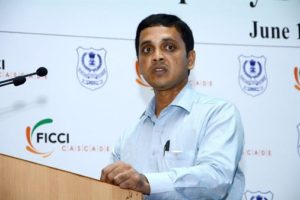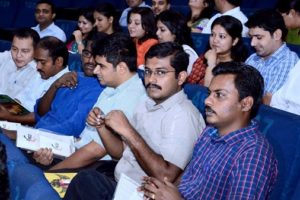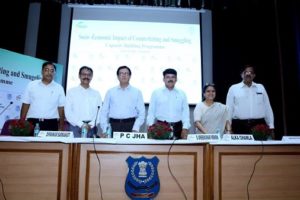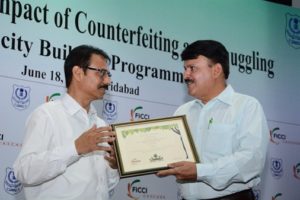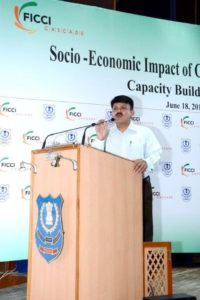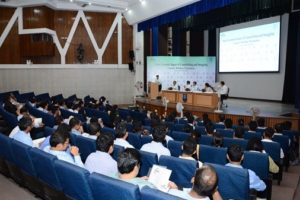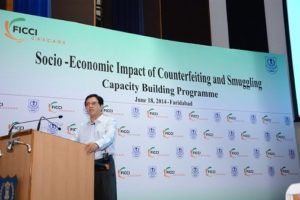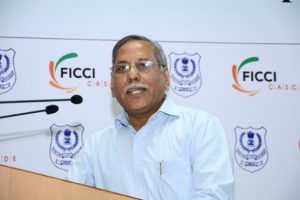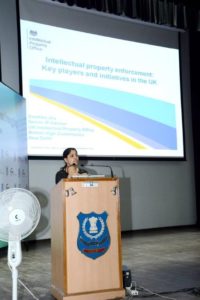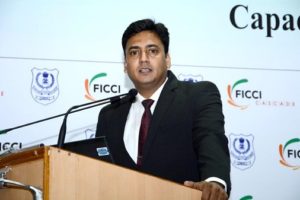One in Ten Cigarettes Consumed in the EU in 2013 Were Illegal; Dramatic Rise in Consumption of ‘Illicit Whites’
New KPMG Study for British American Tobacco, Imperial Tobacco, Japan Tobacco International and Philip Morris International
London, June 24, 2014 – One in every ten cigarettes consumed in the European Union in 2013 were illicit, 33% of which were “illicit whites”, an emerging type of illegal, branded cigarettes manufactured for the sole purpose of being smuggled, according to a KPMG study published today. At these levels, EU governments lost approximately €10.9 billion to the illegal market.
KPMG found that while the number of “illicit whites” consumed increased by 15% compared to 2012, overall, the illegal trade of cigarettes in the EU stabilized, declining slightly from a record high of 11.1% in 2012 to 10.5% in 2013. This stabilization was due to a significant decrease in contraband cigarettes, legal cigarettes typically smuggled from low tax countries to high tax countries, as industry, governments and law enforcement increased efforts to curtail this illegal activity.
Lear More
4 face P120-M smuggling raps
MANILA, Philippines – Four persons were charged before the Department of Justice (DOJ) yesterday for allegedly smuggling P120 million worth of galvanized steel and counterfeit products.
Jose Alingasa Jr., owner and proprietor of Titan Movers Enterprises, a firm based in Binondo, Manila; and customs broker Mon Carlo Inciong face charges of violating the Tariff and Customs Code, Republic Act 4109 (Bureau of Product Standards Law), and Article 172 of the Revised Penal Code, Bureau of Customs (BOC) Commissioner John Sevilla said in a statement.
The case stemmed from Titan’s importation of three 20-foot shipping containers of specialized steel products misdeclared as steel coils imported from Australia in February, he said.
Sevilla said the firm did not obtain the required import commodity clearance for the products’ importation.
Titan was one of 70 firms suspended by the BOC last March for failing to comply with rules and procedures on filing import documents. Sevilla said Titan is not a registered Philippine Standard license holder for any product covered by mandatory certification.
http://www.philstar.com/metro/2014/06/24/1338275/4-face-p120-m-smuggling-raps
Lear MoreAntimony offers from China dry up on renewed smuggling crackdown
Tightness along the border between China and Vietnam has increased amid rumours that the Vietnamese government has started to clamp down on shipments of antimony through this route.
In-warehouse Rotterdam prices held at $9,400-9,700 per tonne for standard grade II and $9,500-9,800 for trioxide grade as demand remained sluggish. But a renewed clampdown on smuggled material through Vietnam supported prices. “Smuggling is a big issue for the Vietnamese government and they have said they will stop exports in and out of Vietnam,” a trader told Metal Bulletin. Shipments from small ports in Vietnam have been stopped as part of the crackdown, some said, while others said the government has imposed a 10% levy on material.
Lear More
Socio-economic impact of Counterfeiting and Smuggling Capacity Building Programme, Faridabad
18/6/2014 | Faridabad
FICCI CASCADE (Committee Against Smuggling and Counterfeiting Activities Destroying the Economy) in association with the National Academy of Customs, Excise and Narcotics, (NACEN) organized a capacity building programme on the ‘Socio-Economic Impact of Counterfeiting and Smuggling’ on June 18 at NACEN, Faridabad. The objective was to sensitize trainee officers of Indian Revenue Service (Customs and Central Excise) on the ill effects of counterfeiting and smuggling on the economy, and on the society as a whole.
Dr. G. Sreekumar Menon (IRS), Director General, NACEN, the Chief Guest at the programme, in his welcome remarks he stated that counterfeiting and smuggling wa a global problem of enormous scale, impacting human lives and virtually every industry sector around the world. India wa no exception, suffering significant economic and health & safety consequences as a result of widespread counterfeiting, piracy and smuggling in the country. Dr. Menon urged industry to make their products and services optimally priced so that consumers did not fall into the trap of the counterfeit and smuggled market.
Mr. P.C. Jha, Advisor, FICCI CASCADE and Ex-Chairman, Central Board of Excise and Customs gave a detailed overview on the Socio-Economic Impact of Counterfeiting and Smuggling. In his presentation Mr. Jha highlighted FICCI CASCADE’s initiatives to curb smuggling and counterfeiting through various awareness programmes engaging industry, policy makers, law enforcement officials, voluntary organizations, the youth and consumer at large. He added that that one of FICCI CASCADE’s mandates was capacity building of law enforcement agencies including for Judges, Police and Customs Officers and CASCADE has been working extensively in this area nationally, organizing training programmes and seminars along with continuous Interactions with the law enforcement authorities to emphasize on the importance of continued awareness and seriousness of the impact of counterfeit and smuggled goods.
Dr. Alka Chawla, Associate Professor, Faculty of Law, University of Delhi and Advisor, FICCI Intellectual Property Education Centre made a comprehensive overview on Intellectual Property – Scope of Rights and Enforcement. Key suggestions indicated by Dr. Chawla included Special Anti-piracy Tribunal; vigorous training of enforcement officials; Centralized National Body with power to enforce cross borders, among others.
Mr. Ravi Mathur, Chief Executive Officer, GS1, India talked about stopping counterfeits at borders. Mr. Mathur stated that Customs authorities were at the front line in the fight against counterfeiting and accounted for 70% of seizures in the world. He emphasized on a three point solution to address the issue:
-
Adoption of anti-counterfeit technologies to enable product authentication at packaging level
-
Implementation of Traceability System to enhance visibility across supply chains
-
Global engagement among regulators, standards bodies, industry and other supply chain stake-holders to ensure safe trade across borders
Mr. Mathur also briefed the participants on IPM (Interface Public Members), WCO’s tool against counterfeiting and suggested Indian Customs to implement IPM module to facilitate instant access and cross-checking of marking/labeling by Customs officials during inspection on cartons consignments with product information provided by rights holders.
Ms. Anshika Jha, Senior Intellectual Property Adviser, UK Intellectual Property Office, New Delhi took the participants through International Best Practices for Curbing Counterfeiting and Smuggling, highlighting key players and initiatives in the process of UK Intellectual property enforcement.
Subsequently, representatives from three leading industry organizations, Hewlett-Packard, Beiersdorf and Pfizer shared their insights on how they handled counterfeiting and smuggling in their respective industries, and interacted actively with the officers on the ways and means to counter the issue.
Mr. Shakil Ahmed, Head Global Security, South Asia, Pfizer stated that pharmaceutical counterfeiting was on the rise around the globe, potentially putting at risk the health of millions of patients. Spurious medicines posed a threat to patient health and safety due to the conditions under which they were manufactured and the lack of regulation of their contents. Despite the conditions under which they were manufactured, spurious medicines were virtually indistinguishable from the authentic medicines they pretended to be. Mr. Ahmed shared with the participants alarming examples and instances of counterfeit products of Pfizer along with counterfeit risk indicators and informed how their global security team was addressing the issue.
Mr. Anubhav Jain, Anti-Counterfeit I&E Manager, Hewlett-Packard informed that HP has created and invested in a variety of brand protection measures and anti-counterfeit programs. HP operates these programs globally and makes effort to provide awareness information to law enforcement that will facilitate the identification of illicit and infringing products in the marketplace. Mr. Jain emphasized that HP was committed to working with law enforcement to deter any and all attacks on its products and brand.
Mr. Santosh Dwivedi, Senior Investigator and Consultant, Beiersdorf shared the Nivea story. Mr. Dwivedi stated that in a recent seize a total of 582,000 counterfeit products were confiscated with a market value at wholesale price of over 2 crores in Mumbai, which was the largest seizure of counterfeits for Beiersdorf till date. Mr. Dwivedi also pointed out differentiators to indentify original and counterfeit products along with possible indicators of counterfeit consignments.
Mr. Dipankar Barkakati, Additional Director, FICCI proposed the Vote of Thanks.
The capacity building programme was attended by over 120 officers of Indian Revenue Service (Customs and Central Excise), in day-long interactive event.
Lear MoreNIR spectroscopy could find fake Chinese liquor
Counterfeiting has undermined the reputation of premium Chinese liquor brands in recent years, but a new study suggests it may become easier to spot the fakes.
The liquor – known locally as baijiu or white spirits – has been consumed in China for centuries and with the burgeoning growth in China’s economy the market has expanded dramatically to reach an estimated $75m a year. It has certainly helped that the spirit tends to be served at both Communist Party banquets and to seal business deals.
Lear More
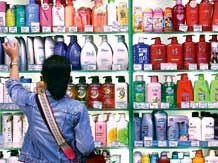
FMCG companies fire-fight to curb counterfeiting menace – Source: Business Standard Online
But experts say that incidence of reporting by companies is actually not high, which is compounding matters
The market for spurious fast moving consumer goods (FMCG) in India is estimated to be nothing less than Rs 45,000 crore, according to a recent study by industry body Assocham. This is almost 23% of the overall Rs 2-lakh-crore FMCG market in India, an eight percentage point growth in five years.
What more? The market for spurious goods is only estimated to grow given the sophistication with which manufacturers today are imitating and producing fake goods.
But are FMCG companies really doing enough to tackle the menace? While players insist they are, experts say that incidents of reporting of counterfeiters is not high in India. “In Mumbai alone, cases of counterfeiting reported is negligible. Just about 15-20 cases for all varieties of counterfeiting is reported in the city, which is less when you take into account how huge this problem is,” says D Sivanandan, erstwhile director general of police, Maharashtra. Sivanandan now runs an advisory firm called Securus First in Mumbai, which consults companies on the issue of counterfeiting. “The first step is to report in greater numbers if this menace has to be tackled,” he says. “For that a new piece of legislation which reflects today’s realities must replace the Copyright Violation Act of 1957 which governs counterfeiting in India. I also feel that there should be a separate economic agency to look into matters pertaining to counterfeiting if the problem has to be tackled effectively,” he says.
Companies pushing hard
Players say they are working closely with law enforcement authorities to bring fraudsters to task. The country’s largest FMCG company Hindustan Unilever (HUL) says that it engages with the police and government bodies at regular intervals to conduct raids and seizures. “In 2013, for instance, we conducted nearly 500 field-level actions with support from police to seize counterfeit and fake products. Similarly in 2013 we worked with the customs to successfully help them make seizures of five consignments of counterfeit products being imported into the country,” Hemant Bakshi, executive director, home & personal care, HUL, said.
Executives from companies such as Emami say they have a separate cell headed by an ex-assistant commissioner of police, whose job is to investigate leads provided by the in-house sales force on places where counterfeit products of its popular brands are made. Once these are identified, the team and local authorities raid these factories.
Firms such as Dabur have gone a step further to carefully map areas where spurious varieties of their products are made. Once they are identified, the company quickly swoops down on them with the help of local authorities to curb the practice.
Some companies also work with external agencies (such as detective agencies) to track down counterfeiters. But is this enough? Hardly anything if the problem has to be nipped in the bud.
A recent report by the Federation of Indian Chambers of Commerce and Industry pegs the revenue loss to the government on account of spurious personal care products at Rs 4,646 crore. If other categories are taken into account, the number will exceed Rs 10,000 crore, experts say.
Privately, companies say that coordination with law enforcement authorities is a challenge, which is why counterfeiters slip through the cracks. The second issue is of imitations and cheap products coming through grey channels, which often becomes difficult to contain given the collusion between government officials and counterfeiters sitting abroad.
Dinesh Dayal, chief operating officer, LÓreal India, who is also the president of the Indian Beauty & Hygiene Association, says that the body is now working closely with both the police as well as government authorities to sensitise them to the problem and close gaps in anti-counterfeit actions.
Lear More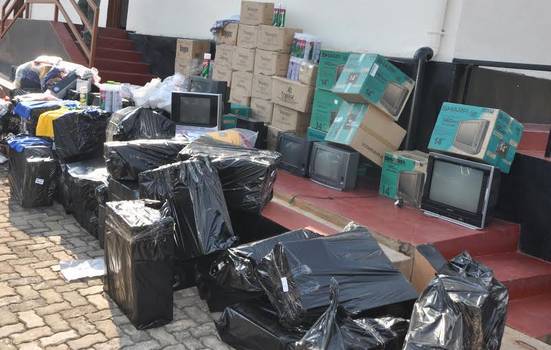
Operation “Wipe-out” seize counterfeit products in Kigali
Counterfeit products valued in millions of francs have been seized in the City of Kigali in an operation code named “wipe-out” conducted jointly by the Rwanda National Police and the international police body – Interpol. Among the forged goods confiscated in an operation conducted on June 17 include 500 print cartridges, 15 sharp television sets, vim, a washing powder and other Uniliver products.
Others include 30 boxes of baygon, an insect-side, 30 cartons of royco, a food flavor, nido, a powdered milk and forged Nike, sharp and lacoste products like shoes and T-shirts.
Wipe-out is an operation conducted in the Eastern and Southern Africa Police chiefs’ cooperation organization member countries to combat cross-border crimes including trafficking illicit and counterfeit goods.
Lear More
Police foil bid to smuggle tobacco products to Lanka
Police arrested five fishermen and seized 300 kg tobacco products meant for smuggling to Sri Lanka in a clandestine boat valued at Rs 20 lakh at Akkalmadam north sea shore at Pamban, here today.
Police said during a routine patrol along the shore, a police team found five persons loading five bags in a Vallam (Country boat fitted with outboard engine). The police rounded up all the persons on suspicion and during the check tobacco products like Hans weighing 300 kg were found packed in the bags.
http://news.webindia123.com/news/Articles/India/20140616/2409033.html
Lear More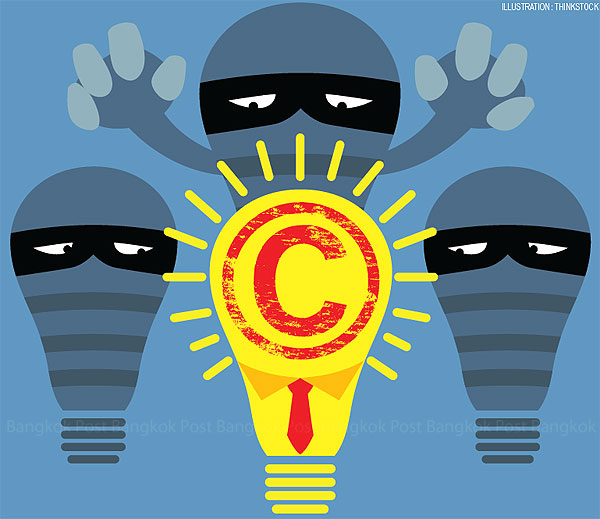
Intellectual property and counterfeiting in Thailand
Whether you know it or not, a day spent in Bangkok will almost certainly involve exposure to intellectual property rights violations and counterfeit goods. In addition to the ubiquitous knock-off designer there are pirated music CDs, counterfeit clothes, accessories and electronics, pirated operating systems for computers, pirated movies streaming 24/7 and even fraudulent vehicles, international driving licences, diplomas, pharmaceutical products, food and passports. That last issue gained prominence with the discovery of two passengers travelling on fake passports on the missing Malaysia Airlines flight MH370. Over the course of the next few articles, we will outline the various laws that are in place to protect intellectual property rights and reduce counterfeiting here in Thailand.
Lear More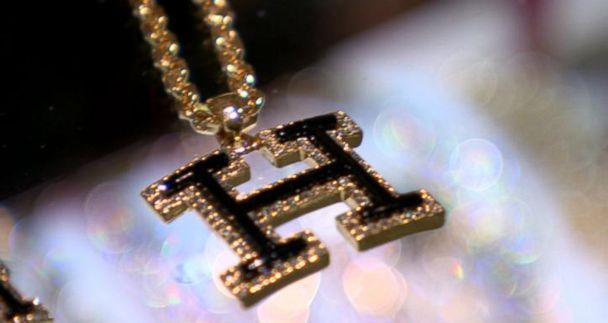
Forget Handbags: Household Items Among Goods Seized in Counterfeit Busts
Counterfeiting has become a $500 billion-a-year criminal industry that permeates everything people carry, wear and even ingest. “[These are] everyday American products that could be retailed in any store around the United States,” Lev Kubiak, director of the Intellectual Property Rights Center in Washington, D.C., told ABC News’ “20/20.”
Lear More




